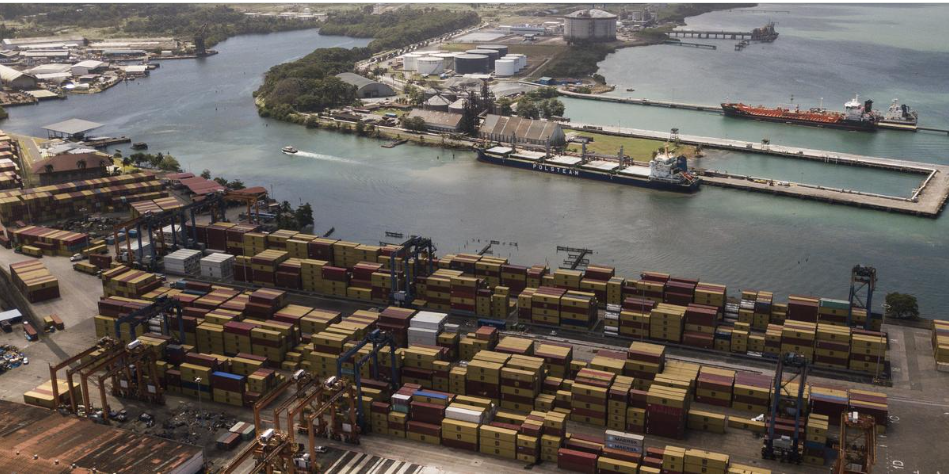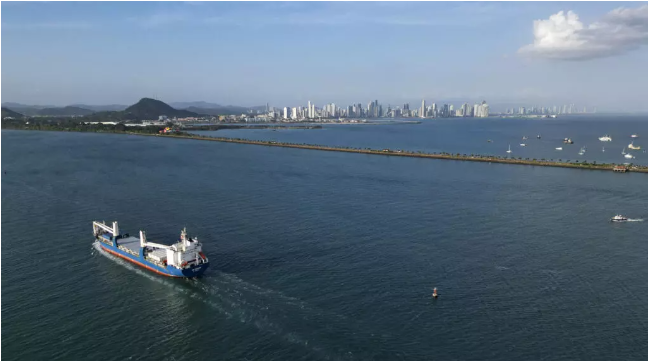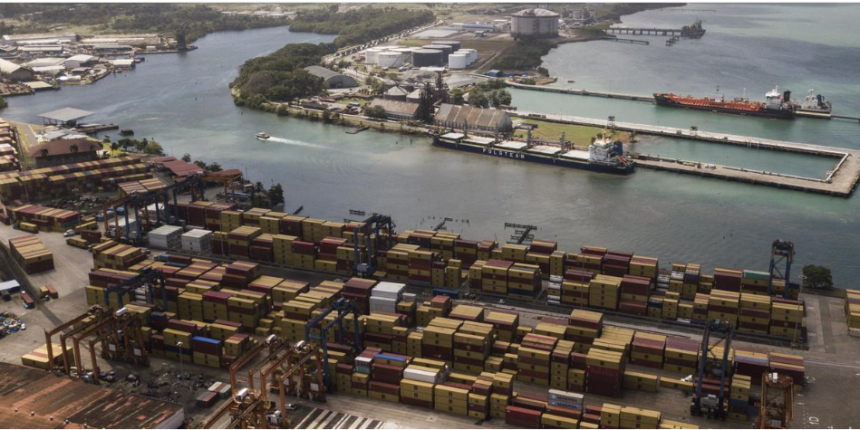Introduction
U.S. Claims diplomatic dispute has emerged between the United States and Panama over free passage rights through the Panama Canal, a crucial maritime route that connects the Atlantic and Pacific Oceans. The U.S. claims it has the right to unrestricted access, citing historical agreements and global trade principles. However, the Panama Canal Authority (PCA) has denied these claims, stating that all vessels must comply with established regulations and toll payments.
Despite tensions, the PCA has expressed willingness to hold discussions with U.S. officials to clarify the situation. This controversy comes at a time when climate change, water shortages, and geopolitical tensions are already straining Panama Canal operations, affecting global shipping routes and economic stability.
This article delves into the U.S. claim of free passage, Panama’s response, the historical and legal context, and the potential consequences for international trade and diplomacy.  For the more information click on this link
For the more information click on this link
Background: The Importance of the Panama Canal
The Panama Canal is one of the most vital maritime chokepoints in the world, allowing ships to avoid the lengthy and hazardous route around South America.
Key Facts About the Panama Canal:
- Opened in 1914 and was originally controlled by the United States.
- The Torrijos-Carter Treaties (1977) led to full Panamanian control by December 31, 1999.
- Handles 5% of global maritime trade, with over 13,000 ships passing through annually.
- The U.S. is one of the largest users of the canal, alongside China and Japan.
- Contributes $2 billion annually to Panama’s economy.
With its strategic location and economic importance, any dispute over access and passage rights could have far-reaching global consequences.
What Is the U.S. Claiming?
The United States has argued that it has a right to free passage through the Panama Canal, based on the following points:
1. Historical Agreements & Treaty Obligations
- The Hay-Bunau-Varilla Treaty (1903) originally gave the U.S. control over the canal and surrounding zone.
- The Torrijos-Carter Treaties (1977) ensured that the canal would remain neutral and open to all nations even after Panama took control.
- The U.S. believes these agreements guarantee unrestricted access for American vessels, U.S. Claims particularly military and government ships.
2. Strategic Military and Trade Interests
- The U.S. Navy frequently uses the Panama Canal to move fleets between oceans.
- The U.S. argues that limiting access threatens global security and affects American trade and military logistics.
- Free passage is necessary to ensure uninterrupted U.S. naval and commercial shipping operations.
3. Response to Shipping Delays & Tolls
- Due to drought conditions and reduced water levels, Panama has restricted daily ship crossings, leading to delays and increased toll costs.
- The U.S. claims that these restrictions violate the principle of free passage, U.S. Claims harming American shipping companies.
In essence, the U.S. position is that the Panama Canal should function as an unrestricted global trade route, and any limitations or fees imposed by Panama contradict historical agreements and international trade norms.
Panama’s Response: Denial of U.S. Free Passage Claims
The Panama Canal Authority (PCA) and the Panamanian government have firmly rejected the U.S. claims, stating that:
1. Panama Has Full Sovereignty Over the Canal
- The 1999 handover of the canal to Panama was final and absolute.
- Panama has the right to set rules, fees, and regulations for all ships, including U.S. vessels.
- The PCA has emphasized that no country, including the U.S. Claims has special privileges in the canal.
2. Neutrality Does Not Mean Free Passage
- Panama follows the Panama Canal Treaty, which ensures neutrality but does not mean free access.
- All ships, regardless of nationality, must pay tolls and follow operational guidelines.
- Military vessels can request priority access, U.S. Claims but only under specific conditions approved by the PCA.
3. Economic and Environmental Considerations
- Due to climate change and water shortages, the PCA has been reducing daily crossings to maintain operations.
- These restrictions apply to all vessels, not just U.S. ships.
- The PCA argues that charging tolls and regulating access is essential for maintaining the canal’s sustainability.
Despite rejecting U.S. claims, Panama has expressed willingness to hold discussions with Washington to avoid escalating tensions.
Legal and Historical Context: Who is Right?
The legal status of the Panama Canal has been shaped by several key treaties and agreements:
1. The Hay-Bunau-Varilla Treaty (1903)
- Gave the U.S. full control over the canal and surrounding land.
- Allowed free passage for U.S. military and commercial ships.
- However, this treaty was nullified in 1977 under the Torrijos-Carter Treaties.
2. The Torrijos-Carter Treaties (1977)
- Established Panamanian sovereignty over the canal.
- Guaranteed neutrality and access to all nations.
- However, it does not grant the U.S. free passage or control over canal operations.
3. International Maritime Law
- The United Nations Convention on the Law of the Sea (UNCLOS) recognizes Panama’s authority over the canal.
- Panama has the right to impose fees, regulate access, U.S. Claims and set environmental rules.
Verdict:
Legally, Panama is within its rights to regulate access and charge tolls, while the U.S. argument for free passage is based on outdated agreements that no longer apply.
Geopolitical Implications of the Dispute
The dispute over the Panama Canal is not just about tolls and access—it has major geopolitical consequences.
1. U.S.-Panama Relations at Risk
- The U.S. is a key economic and military ally of Panama.
- A prolonged dispute could strain diplomatic ties and affect trade agreements.
- Panama relies on U.S. security cooperation and economic support, making diplomacy essential.
2. China’s Growing Influence in the Panama Canal
- China has been investing heavily in Panama, funding infrastructure projects and trade routes.
- If relations with the U.S. deteriorate, Panama could strengthen ties with China, U.S. Claims shifting power dynamics in the region.
3. Impact on Global Trade and Shipping Costs
- If Panama imposes higher tolls and stricter access controls, it could increase global shipping costs.
- The U.S. and other major shipping nations may look for alternative trade routes, such as expanding the Suez Canal or using Arctic shipping lanes.
 For the more information click on this link
For the more information click on this link
Possible Resolutions and Next Steps
Given the importance of the Panama Canal for global trade and security, U.S. Claims both the and Panama are likely to seek a diplomatic resolution.
1. U.S.-Panama Negotiations
- The Panama Canal Authority has invited the U.S. for dialogue, signaling openness to compromise.
- Possible solutions include reducing tolls for key U.S. shipping companies or granting priority access to U.S. naval ships.
2. International Mediation
- The United Nations or regional organizations like the Organization of American States (OAS) could mediate discussions.
3. Investment in Alternative Trade Routes
- The U.S. may explore expanding other shipping routes, such as:
- Investing in rail connections between ports.
- Supporting new canal projects in Central America.
- Strengthening Arctic trade routes as climate change opens up new passageways.
Conclusion: A Diplomatic Challenge for the U.S. and Panama
The dispute over free passage through the Panama Canal highlights the complex interplay between history, law, and geopolitics. While the U.S. argues for unrestricted access, U.S. Claims Panama asserts its sovereign rights over the canal.
With global trade at stake, a diplomatic resolution is crucial to maintain stability and ensure smooth maritime operations. As the climate crisis, economic factors, and strategic rivalries shape future discussions, the Panama Canal will remain a focal point of global maritime policy for years to come. ALSO READ:-Alabama Set to Execute Man with Nitrogen Gas for 1991 Murder, Rape 2025





